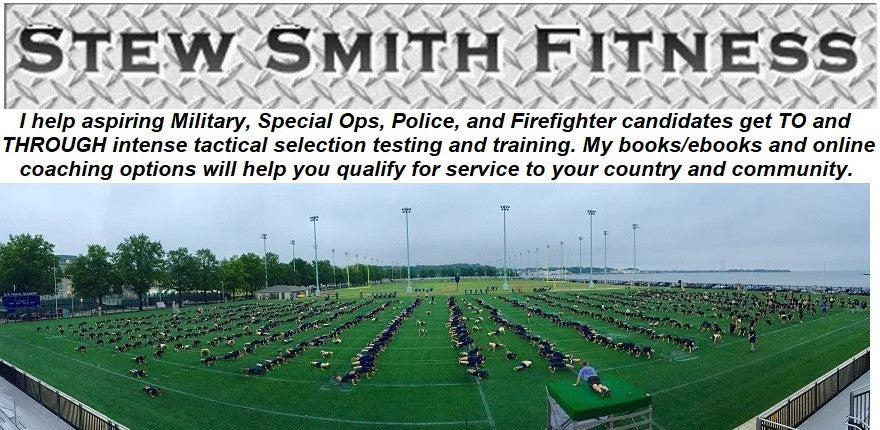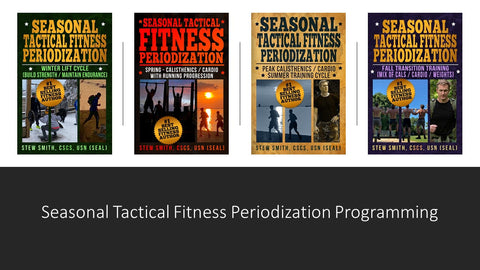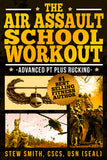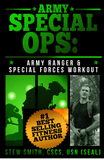Nutrition for Energy: Eat, Sleep, Recover
We eat and sleep nearly every day of our lives unless extraordinary circumstances occur. So, we should get good at it if we care about performance and recovery. In fact, you can use all the recovery tools and methods you want, if you just focus on your sleep and nutrition, you will have close to 90% of the recovery issue handled. Sure, there are times that the "missing 10%" can come in handy with massage tools, supplements, hot/cold treatments, compression gear and more tools of the trade, but for the most part if you nail down the types of food and drinks you ingest and get good restorative sleep consistently, you have done enough. The toughest part of this is CONSISTENCY.
A Non-Scientific Pie Chart on Recovery

Now, I am not a nutritionist or dietitian, but I have some experience with eating and sleeping for athletic performance (sports, PT test, spec ops level training), losing weight, gaining weight and overall health. In the end, it comes down to the quality and quantity of calories you consume each day consistently no matter what the goal. The choices are many and to be honest, you need to find the right combination that works for you. For sleep, to get good sleep, you need to practice good bedtime rituals that promote restorative sleep.
Now - Back to Feeding the Body for Better Performance
The very generalized information on nutrition I give is the basics:
If you want to lose weight - move more and eat less (calorie deficit at the end of each day). Food choices matter as well as consistency.
If you want to gain weight - eat big and lift big. (calorie surplus at the end of each day).
If you want energy to perform well in sports, PT tests, and long days of work or spec ops level training, the advice gets a little more complicated and I go to the experts for advice. Now, eating is not only for energy for performance before and during physical events, but it is also critical for recovery so you can replenish energy levels to do it again the following day. This requires more of a strategy and personal experimentation of foods / drinks that work for you.

Keep a Workout Record, Food Log, Recovery Report
My advice is to keep a journal of the foods you eat / drink daily as well as keep record of workouts and athletic performance. On days you have high energy levels and crush a few personal records in training, you should be assured that your training routine is working, but check back for the previous 24-36 hours to what you ate, how your slept, how you trained or recovered that brought you to exceptional performance today.
When to eat and what to eat are constant questions that affect your fitness performance, weight loss / gain goals, as well as overall health. here is something I learned years ago at an NSCA conference and have been applying it ever since to the question of eating before, during, and after any physical event.
It was taught in a clever format as the ABD's of Nutrition by Paul Moore, MS, RD, CSCS. ABDs was used to abbreviate the process of eating / drinking After, Before, During physical activity. I thought it was a brilliant way to brand a discussion of nutrition throughout the training cycle but to also explain the different needs Before, During, and After. The answers are more complex as each part of the cycle depends on the goals and type of activity obviously as well as personal preference.
This understanding of what foods / drinks work best for performance gains requires a constant search for the individual as the last thing you want is to eat something that causes gastrointestinal distress. Here are some suggestions that will help you figure out WHAT to eat, WHEN to eat, as it all depends on your individual likes / dislikes and goals.
For the Performance Fitness Goal
(Nutrition, Hydration, Body Temp)
If you are preparing to ace a fitness test, compete in a race, or another athletic event, sports nutrition is vital to your performance. First Rule: DO NOT CONSUME CAFFEINE as all it will do is jack up your heart rate artificially and likely place you in an anaerobic state too quickly to maintain that kind of energy output for the duration of the PT test (even if only pushups, situps, and 1.5 mile run). I say this as a first rule as people tend to get over-caffeinated and actually die of heart attack. What you drink matters - avoid energy drinks and even tea and coffee prior to running at max heart rate.
You have to experiment with immediate energy benefits of GOOD carbohydrates of fruits, juices, sports drinks(not energy drinks), protein and fat sources to find what works best for you. You may even be exercising for more than one session per day and for several hours a day. If so, you really need to eat / hydrate well and usually larger quantities of quality food will help you recover from the multiple workouts per day.
If playing sports or training in hot / humid environments, make sure water is consumed regularly before, during and after. If you are sweating profusely, you HAVE TO ADD ELECTROLYTES to your water. This means sodium primarily, but also potassium, calcium, magnesium are important not to neglect during your recovery periods. Personally, I have found that half of my fatigue is body heat, so cool yourself when you can. Frequent water immersion is best. We typically swim last during our summer workouts and go into the pool workout drained from running / high repetition calisthenics outside. After a 10 min tread cool down, we are ready to do the swim workout as the cooler body temperature helps get that second wind we sometimes need in long bouts of training.
Foods for Energy
Once again, these recommended foods have been working for me personally for decades of hard training, your requirements and individual tastes may differ, but most likely the macro-nutrient needs will be similar:

BEFORE WORKOUT: If you are training for long, tough training programs coupled with a high intensity effort for testing your maximums in calisthenics, miles of running, and hundreds of yards of swimming, you need to eat a majority of carbohydrates no less than 45-60 minutes prior to exercise sessions. Choose low fiber, low fat, low/medium on the glycemic index for immediate and sustainable carbohydrate energy. I personally like baby carrots, bananas, and apples for performance testing pre-workout snacks. In fact, many of my weekly 4 mile timed beach runs and 2 mile ocean swims at SEAL training were preceded with these fruits / vegetables. I often joke that baby carrots and apples helped me get through SEAL training. Adding a honey packet for quick energy was a great option when time was tight. A scoop or two of peanut butter was a great addition if you knew the next few hours were going to be more of a longer / stamina based training session. (long paddles, longer runs / rucks, etc).
DURING WORKOUT: Unless you are working out for extended periods of time to get used to 8-10 hours of training at Special Operations School, food intake during normal 1-2 hour workouts is not needed. However, during high intensity training off and on throughout the day, you should be eating a higher carbohydrate diet but mixed with some light protein snacks as well. The carbs are there to fuel you through the rest of the workout day and the protein comes in to assist with added calories but to also help you recover when the day/long workout is complete. Consider this an endurance athlete approach to training. You need to be able to sustain high repetitions of body weight movements, some strength /power for moving heavier team building objects, and endurance as well as the calories to handle many miles of running, rucking, or swimming - good carbs help with that if you can add in a few sips of carb drink during events.

AFTER WORKOUT: This could be a few of your regularly scheduled meals depending upon the time of day you choose to work out. The fitness performance group needs to immediately focus on carbohydrate replacement as well as protein consumption for both glycogen stores and muscle repair / growth for the next workout respectively. Find what carbohydrates and proteins work best for you but I would make sure that these meals are not only a post workout meal but also a PRE-workout meal for the next workout later in the day or early the following day. Supplements tend to come into play during the post workout nutrition game. I am not personally into supplementing daily other than some omega 3 and 6 capsules and some multi-vitamins rich in all the B vitamins especially - and if going through military selection training, you cannot do supplements anyway. For a quick fix and in replacement of food in a pinch, I will take some whey protein powder with some chocolate milk. See list below of quality carbs / protein sources that work great as post workout meal ideas.
Great ideas are:
Carbohydrate Options: Multi grain breads and pastas, cereals, vegetables (romaine lettuce, broccoli, asparagus, carrots), fruits, (tomatoes, strawberries, apples, berries, oranges, grapes, and bananas ) make great carbohydrates for energy. However, if you need to add some calories for either weight gain or weight maintenance due to high calorie burn rates, add in a limited amount of post meal milk shakes or a great mix of both carbs / protein is chocolate milk. IF milk does not aggravate your stomach. The antioxidants in these foods are also helpful for recovery and repairing of cells damaged to hard training.
Protein Options: Meats, fish, chicken, eggs, nuts, almonds, beans, milk, milk shakes with additional whey protein powder (optional), peanut butter. I personally ate brown rice and lima beans at the end of the day (after dinner) as a snack during SEAL training. The added sodium of canned beans helped with rehydration needs as well. I liked beans and nuts in between workouts during snack time or have a few servings with a main course of meat or fish for a good balance of plant and animal protein. Salted nuts and almonds are great sources of protein, good fats, and sodium (if needed).
Fat Options: Fish, nuts, olive oils, omega 3 fortified products (milk, margarine, peanut butter). Typically, I get most of these fats from nuts and fish, but I also supplement the omega 3 fatty acids most important to longevity / healthy recovery and inflammation.

The ABDs of HYDRATION: Personally, if I can wring out my shirt after a workout, I will add more of these salts into my post exercise diet. Sure you can add sports drinks but stay away from the energy drinks that are loaded with caffeine as these are not what you need. Sports drinks with sodium, potassium, carbohydrates (sugar) are your best bet for hydration during and after hard sweaty exercise. But bananas and water are also sufficient in most cases. Here are some ideas for hydration:
- After Workouts - One of my favorite post exercise (extreme sweat loss) snacks is a can of chicken noodle soup (Campbells Noodle Os) as it is loaded with potassium, sodium, carbs, protein as well. In fact it has about 3-4 times the potassium of a banana and about 5-6 times the potassium of Gatorade. If you are not sweating much nor in arid environment, you do not need this soup, water will be enough to hydrate you. But I have always treated dehydration the way I treat the FLU - hydrate and electrolytes will make you feel better.
- Before workouts, do not drink too much if you are doing significant running as the bouncing will potentially cause cramping. But be thoroughly hydrated in your body (not an overfilled stomach).
- During workouts, sip water or carbohydrate / electrolyte mix every 10-15 minutes to maintain high intensity performance training.
- A ballpark equation for daily consumption of liquids for highly active person is:
50-75% body weight in lbs = oz per day of H2O
So for me as a 200 lbs man, I drink around 100-150oz of water a day (depending on activity) which is just less or more than a gallon range.
Conclusion
Finding the right mix of carbohydrates, protein, fats, electrolytes and water all depend on your age, sex, weight, activity level, and goals. Every day you have a killer good workout / test scores and feel great afterwards, make a note of everything you did that day. Very often it is the formula that works best for you and your fitness performance goals. Same goes for bad training / performance days as you can usually see that your sleep, nutrition were out of whack that caused it.
There is More To StewSmithFitness.com than You May Know
(In fact, there are more than 40 books, 1000+ articles, online coaching - and more). If books are not the accountability factor you need, consider Online Coaching with Stew:
Online Coaching Programs (Personalized for Your Goals, Time, Equipment, etc..)
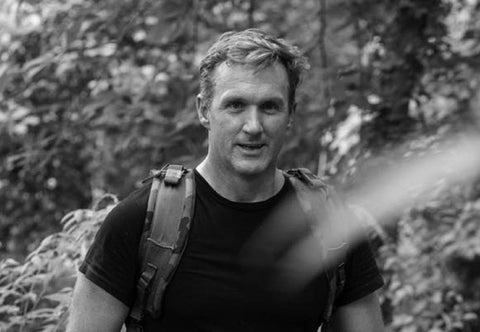
Who is Stew Smith CSCS? Coach, Trainer, Writer, Podcaster: I'm the former Navy SEAL that tactical candidates go to for books, ebooks and online coaching to prepare themselves to get to and through intense tactical assessment and selection programs and qualify for service in their chosen tactical profession. See More at StewSmithFitness.com
Where to Find More Information About Optimal Performance Training Programs
When you start training again, consider the seasonal tactical fitness model. I call it A WAY to train and obviously not the only way to train. But it offers the opportunity to never neglect your weaknesses, helps with flexibility and mobility, but will also put you at a level of physical abilities where you are happy with your overall ability to do just about anything. We have a system where the seasons dictate our training. When it is nicer outside, we tend to run and do more calisthenics. When it is colder and not so nice, we lift more, run less, and still maintain our outdoor activities with shorter runs and rucks. Check it out: Seasonal Tactical Fitness Periodization System.
Check out the Stew Smith Fitness Store for more information on what we have available.
Special Ops Programming
Military Programming






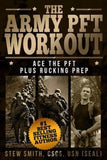

and many more...
Police and Fire Fighter Programming
General Fitness Programming







and many more...
Home Gym Programming
Personalized Training Programs - Personalized online coaching available too - any fitness level. In fact, most people on the PT CLUB program are over 40 with specific health and fitness goals.
Try Our Stew Smith Fitness Members Only Club - #1 Best Selling Tactical Fitness Programs
 Questions? Just email me at Stew@StewSmith.com
Questions? Just email me at Stew@StewSmith.com
At StewSmith.com - List of Products and Services
- FREE Articles
- Podcasts and Swimming Videos at Youtube.com page
- eBooks
- Books and eBooks in PRINT
- Stew Smith Fitness Club membership site
- Online Coaching
